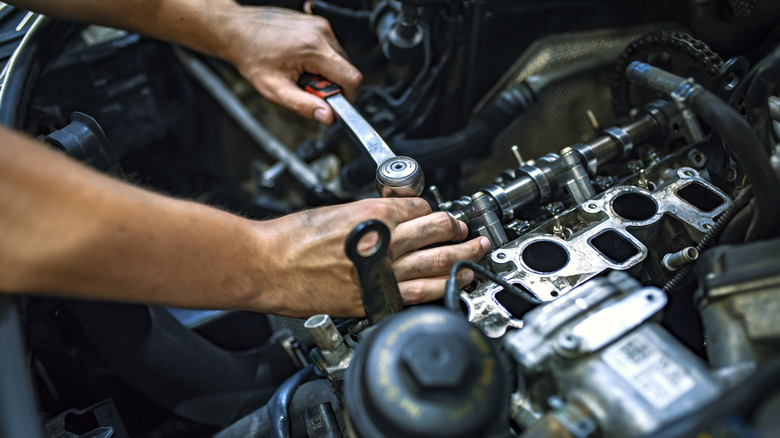You may have noticed that diesel engines are much louder than their gasoline counterparts, and you probably questioned why that was the case. While a noisy engine is usually a sign of trouble, that’s not always the case with diesel engines. The combustion process, higher compression ratios, and the physical characteristics of diesel engines all contribute to the distinctive clatter these engines are known for. Even if you don’t own a vehicle with a diesel engine — after all, they make up a small percentage of vehicles on American roads — you’ve almost certainly heard the unmistakable rumble of a diesel truck on the road.
Diesel engines have a lot going for them, including being more efficient than their gas-powered counterparts, but they’re lacking in the sound muffling department. Technological advances have gone a long way toward quieting diesel engines to the point where the noise produced by many modern diesel engines bears only a passing resemblance to the road-noise-generating diesel engines of old.
Understanding the diesel noise

Ljubaphoto/Getty Images
The difference in the noise levels of diesel and gasoline engines comes down to the specific differences in their operation and combustion processes. Diesel engines, for example, rely on compression ignition — a process where air is compressed until it reaches a high temperature before the diesel fuel is injected into the combustion chamber. The compressed air is so hot that it ignites spontaneously without using spark plugs, contributing to the engine’s loud noise.
Diesel engines produce a larger explosion during the combustion process due to the composition of diesel fuel, and how it ignites. Diesel fuel molecules are larger and denser and contain more energy per volume than gasoline. When these larger molecules combust under high pressure, they create a bigger, louder explosion. A gasoline engine, on the other hand, only combusts when it is sparked — with a spark plug being used to ignite a premixed air-fuel mixture — resulting in a smoother, quieter combustion process. Diesel engines also tend to have noisier operations because they use rugged, heavy-duty components designed to withstand the high pressures generated during combustion.
Advances in diesel technology have helped to mitigate this, with refined injection systems and noise-dampening materials making what you’d hear today much quieter than what you’d hear even a decade ago. Still, the different combustion methods mean that diesel engines are still generally louder than gasoline engines. That said, noise level shouldn’t be a deciding factor when deciding whether a diesel vs. gasoline engine better meets your needs.